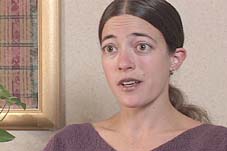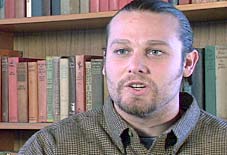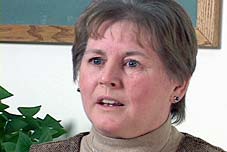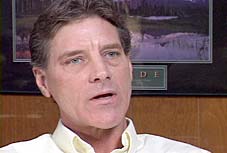 |
|
|
Videos
PO Box 2480Nevada City, CA 95959
Phone/Fax: 800-345-5530
(530-477-0701 outside US and Canada)
Email: info@cavalcadeproductions.com
 A Video Series on Traumatized Children:
A Video Series on Traumatized Children:
The Traumatized Child
The impact of abuse and neglect on children–on their behaviors, on their sense of self, and on their capacity to form attachments with new caregivers–can pose challenges for foster and adoptive parents, as well as for teachers and other professionals. In this video series, therapists Margaret Blaustein, Joyanna Silberg, Frances Waters, and Sandra Wieland describe how traumatized children understand the world and interact with others differently from other children, and how adults can respond most effectively. They explore such topics as anger and anxiety, trauma triggers, dissociation, de-escalation strategies, grounding techniques, and the process of building a trusting relationship. Their observations are reinforced by the accounts of parents, teachers, and former foster children. The presenters emphasize the importance of understanding what drives traumatized children’s behaviors, rather than simply reacting to them. They provide concrete suggestions for stabilizing traumatized children and improving adult/child interactions. Useful for foster and adoptive parents, teachers, school counselors and psychologists, and mental health professionals. Released 2004.
Understanding the Traumatized Child
Parenting the Traumatized Child
Teaching the Traumatized Child Purchase price: One VHS/DVD $95, two $175, all three $250 Customers who bought this video series also bought: About the Presenters Margaret E. Blaustein, PhD is a clinical psychologist specializing in the treatment of children and families impacted by chronic trauma. She is the Associate Director of Children’s Services and the Clinical Training Coordinator at The Trauma Center in Allston, MA, a site of the National Child Traumatic Stress Network. Joyanna Silberg, PhD coordinates Trauma Disorder Services for children at Sheppard Pratt Health System in Baltimore. She was Clinician at Forbush School in Baltimore, which provides special education and therapeutic services for emotionally disturbed children in pre-school through 12th grade, for 8 years. Frances Waters, DCSW LMFT, in private practice in Marquette, MI, has specialized in the field of child abuse for 25 years. She works as an educator, trainer, consultant and clinician in the area of childhood trauma and dissociation. She is president-elect of the International Society for the Study of Dissociation. Sandra Wieland, PhD is a psychologist working with children, adolescents, and adults who have experienced trauma, at the Centre for Counselling and Therapy, Victoria, B.C., Canada. She is past director of the Centre for Treatment of Sexual Abuse and Childhood Trauma in Ottawa, and has written several books on therapy for children who have experienced abuse. Chris Bock has been a foster parent for 18 years, working with high school age boys. Gerald Fogel worked with emotionally disturbed children for 26 years, and is now retired. He taught a 7-12 ED class for 6 years, and a K-8 ED class for 16 years. Grace Griffin and her husband Fred have been foster parents for 12 years, and have cared for more than 100 foster children. Dale Latimer has worked with emotionally disturbed children for the last 20 years. He currently teaches a high school ED program, and coaches basketball. Kathleen Molaro has taught for 20 years, the last 6 years in kindergarten. She and her husband Cliff adopted John when he was 8 years old. Nancy Robinson has taught for 30 years, 20 of them in kindergarten. She currently teaches second grade. Chris Shelton has taught school for 32 years, 16 years in first grade and 16 years in 6th-8th grades. She is also an MFT, with a private practice in marriage and family therapy. Terry Winters and his wife Vicki have been foster parents for 3 years. The Trainer’s Guide The 50-page trainer’s guide includes objectives, reproducible viewer outlines, review and discussion questions, a resource list, a journal article, and a book chapter, described below. Cook, A., Spinazzola, J., Ford, J., Lanktree, C., Blaustein, M., et al. (2005). Complex trauma in children and adolescents. Psychiatric Annals, 35(5), 390 - 398. This article describes a new theoretical framework for understanding complex trauma in children, explains how to apply this framework to assessment of traumatized children and families, and discusses intervention models designed specifically for traumatized children and their families. Chapter 4, "Breaking the Curse", from Richard Kagan’s book, Rebuilding Attachments with Traumatized Children: Healing from Losses, Violence, Abuse, and Neglect (Haworth Press, 2004), discusses myths that perpetuate abuse and neglect, the criminal justice system, removal of children from the home, the need for more than a loving home, obstacles to rebuilding attachments, strengthening families, and parenting as commitment. |



